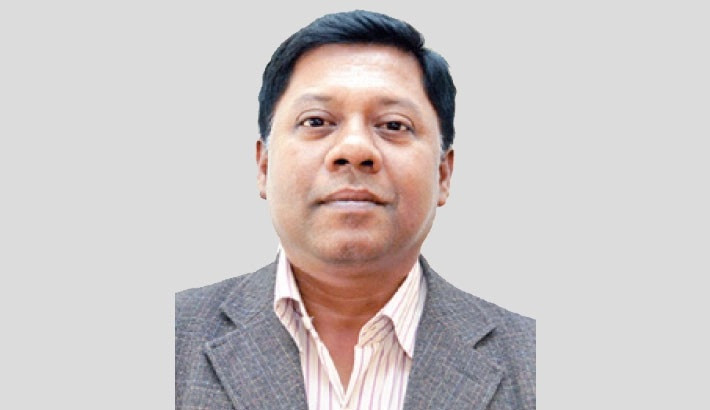Fourth Term of Hasina Government: Expectations of the Masses
Dr Matiur Rahman
Published: 13 Jan 2024

As Bangladesh gears up for the fourth term of Prime Minister Sheikh Hasina's government, the nation is rife with anticipation and speculation. Sheikh Hasina now faces a renewed set of expectations from the people.
Controlling the escalating prices of daily essentials stands out as the foremost priority for Hasina's government. Skyrocketing prices of basic commodities create a ripple effect, impacting the overall cost of living. The government's commitment to economic development must be complemented by strategic measures to curb inflation and price hikes.
Implementing effective price control mechanisms, monitoring supply chains, and curbing hoarding practices are critical steps in stabilising prices and easing the financial strain on the masses.
By prioritising the control of price hikes, the government can demonstrate its commitment to the welfare of the people. This proactive approach not only safeguards the purchasing power of citizens but also fosters social stability and harmony. As the cornerstone of the government's economic agenda, addressing the affordability of daily essentials resonates with the immediate concerns of the masses, reinforcing the government's commitment to inclusive and responsive governance. Ensuring that the benefits of development reach every household remains central to fostering a resilient and thriving society.
Curbing corruption at all levels of the state is a critical imperative for the government. Corruption not only erodes public trust but also undermines the efficiency and effectiveness of governance. To strengthen the fabric of good governance, the government must adopt a multi-faceted approach, emphasising transparency, accountability, and institutional reforms.
Implementing robust anti-corruption measures requires reinforcing oversight mechanisms, promoting a culture of integrity, and enhancing the capacity of anti-corruption agencies. Stringent enforcement of existing anti-corruption laws and swift prosecution of wrongdoers sends a strong signal that corruption will not be tolerated.
Furthermore, fostering a citizen-centric approach by encouraging public participation in governance and providing avenues for reporting corruption can act as a deterrent. Institutionalising ethical standards within public administration and conducting regular audits can help identify and rectify vulnerabilities. As corruption often thrives in opaque environments, a commitment to openness and accountability can create a more resilient and trustworthy state apparatus.
Successfully curbing corruption is not only a moral imperative but also crucial for sustainable development. By prioritising anti-corruption efforts, the government can bolster its reputation, attract investment, and ensure that the benefits of progress are equitably distributed.
Good governance and anti-corruption measures are pivotal for building public trust and ensuring the efficient functioning of the government. The masses hope for continued efforts to enhance transparency and accountability and eradicate corruption at all levels. Strengthening institutions that uphold the rule of law and promoting a culture of accountability are key expectations for the upcoming term.
One of the key pillars of Hasina's governance has been her emphasis on economic development. The masses eagerly anticipate continued efforts to bolster the nation's economy, create jobs, and enhance living standards. Bangladesh has witnessed significant economic growth under her leadership, and the hope is that this momentum will be sustained in the coming term.
Education and healthcare have consistently been focal points for the Hasina government. With an eye on the future, people expect a continued commitment to improving the education system, ensuring quality healthcare, and investing in research and development. The emphasis on human capital development is seen as vital for the nation's long-term success.
Prime Minister Hasina has often underscored the importance of social welfare programmes to uplift the underprivileged. As the government enters its fourth term, expectations are high for the expansion and enhancement of these programmes. Ensuring inclusivity and addressing the needs of marginalised communities remain imperative for social harmony. The masses anticipate policies that promote equal opportunities and create a more equitable society.
In an era of increasing environmental challenges, concerns about sustainability and climate change have become more prominent. Bangladesh, prone to natural disasters, needs robust strategies for environmental conservation and climate resilience. The people expect the government to prioritize sustainable development, invest in renewable energy, and take decisive steps to mitigate the impact of climate change on vulnerable communities.
In an interconnected world, diplomatic relations play a crucial role in shaping a nation's standing on the global stage. The masses look to the government to maintain strong and balanced foreign relations, fostering international cooperation and partnerships. With geopolitical dynamics constantly evolving, a prudent and strategic foreign policy is seen as essential to safeguarding Bangladesh's interests and promoting regional stability.
The government also faces numerous challenges. From addressing the impact of the global economic slowdown to navigating regional geopolitical complexities, the path ahead is fraught with hurdles. The masses understand that effective governance requires adept handling of challenges.
As Prime Minister Sheikh Hasina's government embarks on its fourth term, the expectations of the masses reflect a collective desire for continued progress, development, and social harmony. The challenges ahead are formidable, but the resilience and determination that have characterised Bangladesh's journey under Prime Minister Hasina instil confidence in the people. The forthcoming term is a crucial chapter in the nation's on-going quest for prosperity.
____________________________________________
The writer is a researcher and development worker

